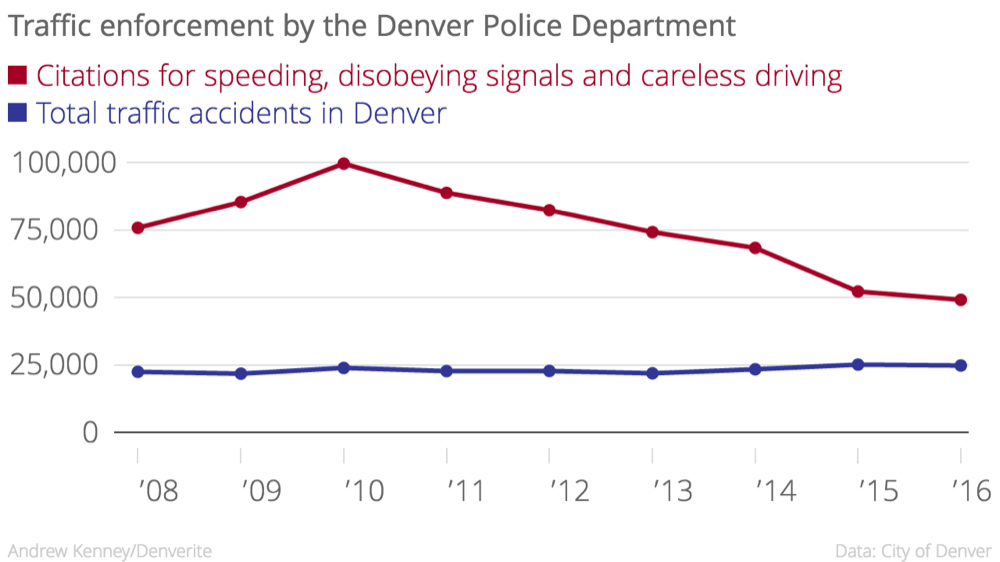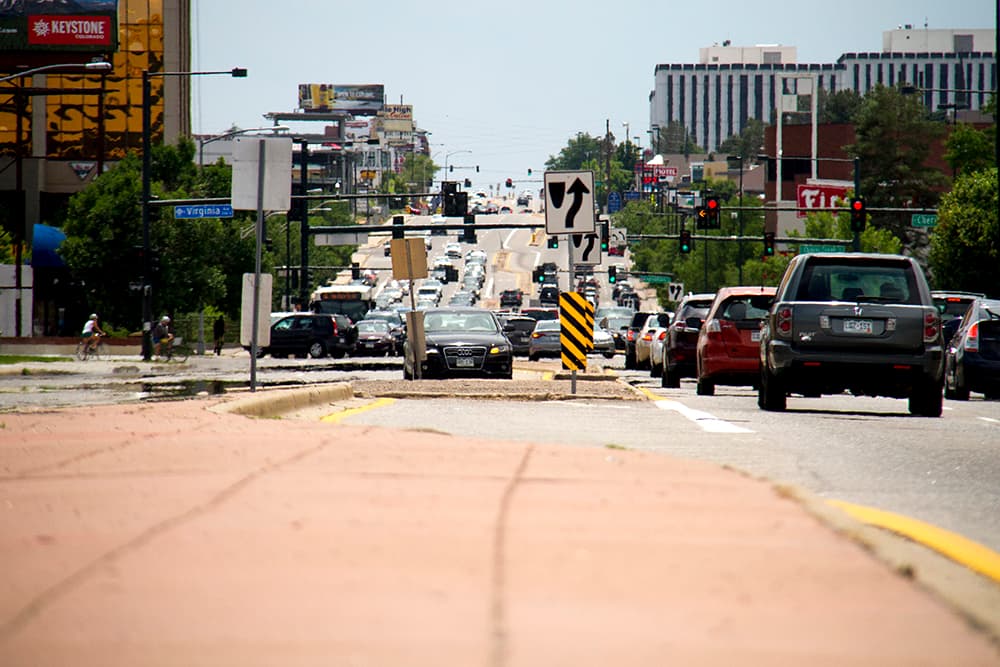The number of traffic citations issued by Denver police officers has dropped by 50 percent since 2010, according to data provided by the city.

A review of courts data shows that even as the city's population grows, fewer people are being cited for offenses such as speeding, disobeying traffic signals and driving carelessly.
Let's look at the specifics.
DPD provided a breakdown of all the different categories of traffic charges for me, and it showed a fairly uniform decrease across all types.
The figures in the chart do not include tickets issued through the red-light photo program, so this seems to be a change in how officers are approaching their job.
Speeding tickets dropped by 30 percent from 2013 to 2015, unlawful turning citations by 17 percent, stop-sign violations by 40 percent and turn-signal violations by 20 percent.
The number of arrests for driving under the influence also is down, declining from a total of about 3,000 in 2009 to an estimated 2,300 this year.
The same goes for school zones: While almost 7,200 people were cited for traffic violations in school zones in 2009, that's expected to drop to a low of about 4,700 this year.
Even the number of "bicycle speed" tickets is down -- from one in 2013 to zero in 2015
I asked Doug Schepman, a spokesman for the Denver Police Department, about why the number of citations has dropped.
He said that officers may be taking a lighter touch, and that traffic officers may be getting shifted to other duties.
"Regarding the decrease in citation numbers, DPD’s goal for traffic enforcement is improving drivers’ behaviors, and sometimes that’s accomplished through a citation, an advisement or a verbal warning – officers can use discretion in this area," he wrote in an email.
"Secondly, traffic officers are typically the first officers to be reassigned to assist with special events, road closures, demonstrations, etc. This can result in fewer proactive traffic patrols."
The city's budget document argues that enforcement is important.
"Nationally, there is a relationship between enforcement and accidents; as citations increase, accidents decrease," the police budget states.
Indeed, the number of auto collisions has climbed by about 15 percent over the last few years, as you can see in the chart above. That's about three times faster than the population growth rate.
The number of fatal crashes, meanwhile, hit its highest recent tally in 2015 -- a total of 51 deadly collisions, compared to a recent low of 31 in 2011.
However, this might change in the year ahead.
Mayor Michael Hancock's proposed budget includes about $16 million to add 48 new officers. That's an increase of about 4 percent over the current 1,331 uniformed police officers in operations.
Denver also is set to spend about $1.2 million on 42 new vehicles, which would allow more officers to go out on patrol simultaneously.
The budget does not say specifically where these new patrols will be, except for an increased focus on downtown.
What's your experience?
Have you unexpectedly gotten off the hook for a ticket? Are you seeing more or fewer officers on the roads? Email me.












